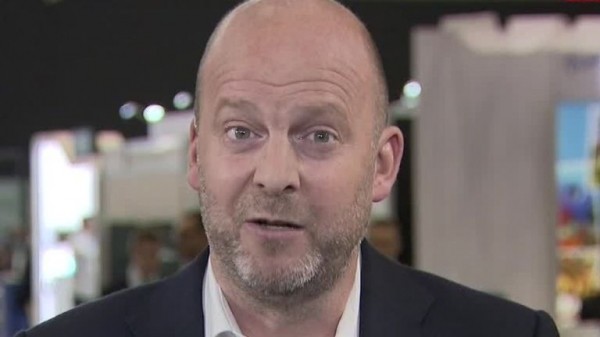Business survey figures suggest that the economy shrank by 0.1% in the three months to September – a second consecutive decline.

The UK economy appears to have tipped into recession according to a closely-watched survey which showed that the dominant services sector shrank last month amid Brexit uncertainty.
Figures for September from the IHS Markit/CIPS purchasing managers’ index (PMI) complete a grim picture of Britain’s third quarter performance, indicating GDP fell by 0.1% over the period.
If confirmed by official figures published next month, it would mean the UK has suffered two consecutive quarters of contraction – the definition of a recession.
However, a number of economists cautioned that the PMI surveys had in the past proved to be too downbeat.
The sprawling services sector – which covers a range of businesses from law firms and accountants to travel agents and restaurants – represents 80% of UK economic output.
September’s PMI reading of 49.5 – where the 50-mark separates expansion from contraction – adds to readings earlier this week suggesting manufacturing and construction sectors also shrank.
UK services sector contracts in Sept according to PMI data. Manufacturing & construction also contracting. In normal times this would be a recession signal. But worth being a bit cautious because PMIs have tended to understate GDP outcomes in recent months pic.twitter.com/8R8vpz3kJw
— Ed Conway (@EdConwaySky) October 3, 2019
It is the first month in which all three key parts of the economy have registered a decline since 2009 – excluding July 2016, the month after the Brexit referendum.
The survey pointed to the imminent deadline for Britain’s departure from the EU being behind the latest downturn.
Chris Williamson, chief business economist at IHS Markit, which compiles the figures, said: “Brexit-related concerns dominated the survey responses, linked by companies to falling sales, cancelled and postponed projects, a lack of investment and job losses.”
There was evidence that international clients in the services sector had switched business to other markets “amid increased concerns around a potential no-deal Brexit”.

Meanwhile across the economy, the survey suggested that private sector employment fell at the fastest pace since December 2009.
The all-sector PMI reading of 48.8 for September, down from 49.7 in August, was the first back-to-back contraction since the end of 2012.
But some economists stuck to forecasts that GDP grew by 0.3% in the third quarter, which if accurate would mean the UK did not fall into recession.
They pointed out that the PMI data excludes retail figures and said that the surveys had previously missed the previous positive impact on the economy from Brexit preparations.
Ruth Gregory, senior UK economist at Capital Economics, said: “We can take some comfort from the fact that the surveys have not been a fool proof guide to the official data recently.
“Nonetheless, the surveys are probably giving us a reasonable steer on the underlying strength of economic activity, and the risks to our Q4/Q1 GDP growth forecasts appear to be firmly to the downside.”
Next article
PM ‘disappointed’ as Trump aims tariffs at UK products
